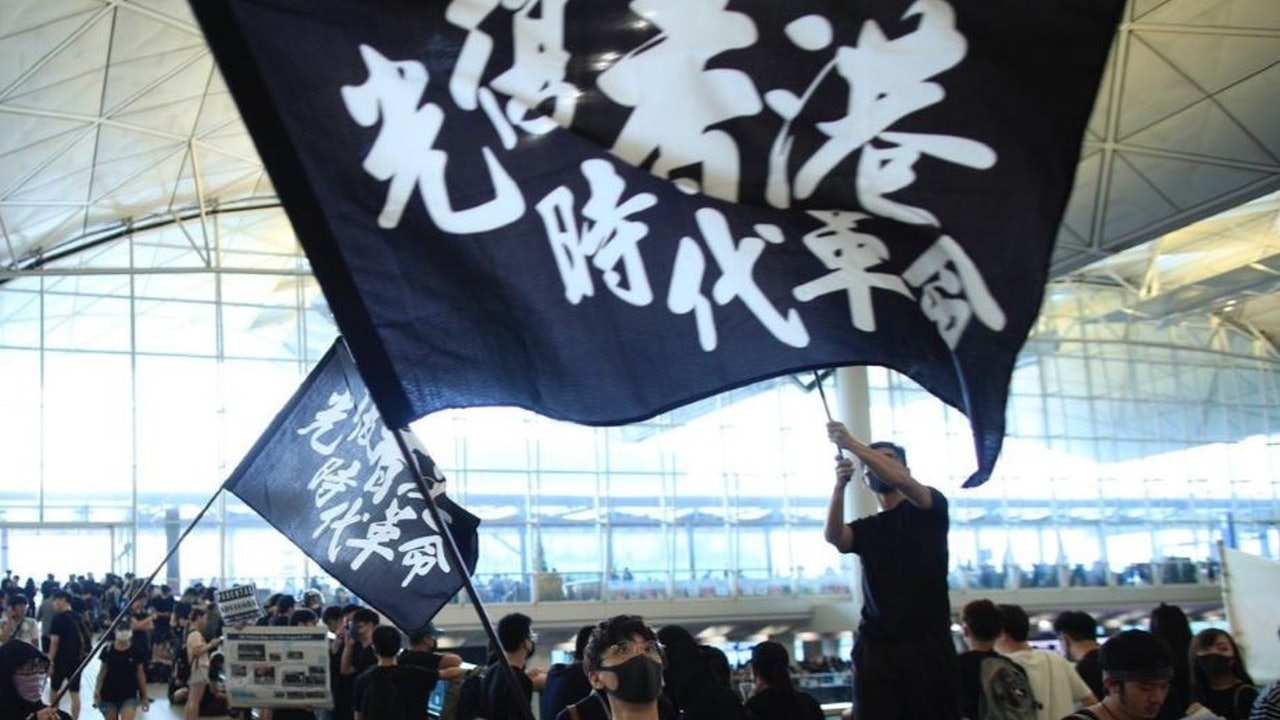Political situation
Author: Zhen Yiheng
2020-07-05 16:47
Date of last update: 2020-07-05 16:47Several days after the "National Security Act of the Hong Kong District" came into effect, many people have been arrested for displaying and harboring the slogan "Recovering the Revolution of the Hong Kong Times". The Hong Kong Government has issued a statement that the slogan "Guangshi" has a unique meaning in Hong Kong today.
Song Xiaozhuang, director of the National Hong Kong and Macao Research Association, said that it is impossible to generalize whether possession of a slogan in Hong Kong is illegal, but it does not rule out that the slogan "Guangshi" should be investigated. Guo Rongkeng, a member of the Legislative Council of the legal profession, questioned that the current law enforcement situation has reached the level of "criminalization by words". The legislation is not only very vague, but also "too wide". The public may fall into the law without fully understanding the legislation.
Song Xiaozhuang believes that it is difficult to comment on whether or not possession of Hong Kong-only items is illegal, and the slogan "Guangshi" used to be investigated. (Profile picture/YouTube screenshot)
Hong Kong and Taiwan program "City Forum" discusses the Hong Kong version of the National Security Law today (5th). Song Xiaozhuang, a member of the National Hong Kong and Macao Research Association and a professor of the Hong Kong and Macao Basic Law Research Center of Shenzhen University, said that when measuring law enforcement standards, it is not possible to simplify complicated matters and focus on a single incident. For example, whether it is illegal to hide Hong Kong-independent articles, it is necessary to wait for the police to investigate whether a large amount of printing has been carried out and whether it has been used in illegal gatherings.
Shi Yongqing, the founder of the Central Plains Group on the same field, believes that it is difficult to make a conclusion about simply harboring Hong Kong independence items, depending on whether the parties participate in certain groups that advocate independence, whether there are other slogans in the operation, and whether the past behavior makes people feel that Hong Kong independence Tendency etc.
Regarding the Hong Kong University Law School professor Chen Hongyi said this morning that the National Security Law does not expressly prohibit the possession of Hong Kong-only items, Shi Yongqing believes that the police have no right to interpret the law, and different departments will have different interpretations of the legal provisions, but the final interpretation right lies in the NPC Standing Committee.
National Security Law|Zheng Ruohua: The National Security Commission may decide that the central authority for police enforcement is not subject to judicial review
Police District Councillor Wong Man-suan discusses violation of the National Security Law of Hong Kong District
The Hong Kong version of the National Security Law|Chen Hongyi: The Central Government stipulates a one country, two systems bottom line, prohibiting review and restricting the jurisdiction of the court
Song Xiaozhuang: "Guangfu" means returning to the British rule
As for the government's earlier statement that the slogan "Recovering Hong Kong Times Revolution" means Hong Kong independence, Song Xiaozhuang believes that the meaning of the words "recovering" depends on time and space restrictions. For example, Hong Kong used the word "recovering" during the anti-Japanese period, but now uses "recovering" The term "recovery" has the meaning of bringing Hong Kong back to the period of British governance, and questioned whether it wanted to overthrow the existing "one country, two systems."
Zhong Jianhua, deputy chief executive of the Hong Kong Institute of Public Opinion, countered that Hong Kong did use the words "emphasis", but no one in Hong Kong wants to restore colonial rule. He called himself a "democratic returnee" and witnessed that after the return of Hong Kong, the government was more accountable and more open than in the past, but the space for speech can not be worse than the era of colonial rule.
Guo Rongkeng. (Profile picture)
Guo Rongkeng: Chief Executive appointed judge to undermine the rule of law
Guo Rongkeng criticized that the provisions of the National Security Law were too vague and the definition was too broad, and it was easy for the public to break the law without fully understanding the law. He also pointed out that the Chief Executive appointed a judge in the Guoan case. If the foreign judges were deliberately excluded, the rule of law would be undermined.
Hong Kong version of National Security Act Hong Kong Independence







/cloudfront-eu-central-1.images.arcpublishing.com/prisa/3I74UEXLYRBBRPGPSGWNN6WXH4.jpg)